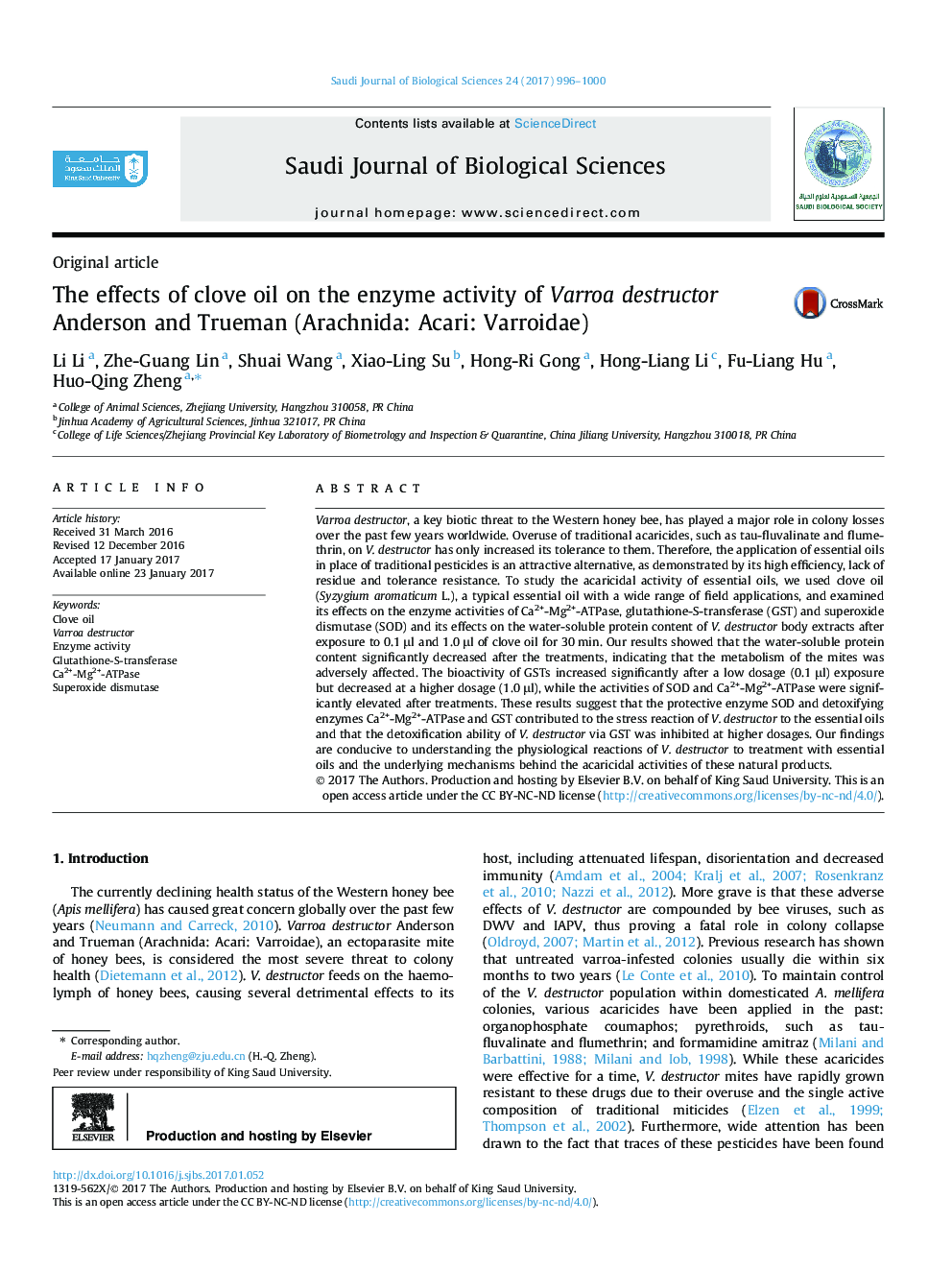| Article ID | Journal | Published Year | Pages | File Type |
|---|---|---|---|---|
| 5745470 | Saudi Journal of Biological Sciences | 2017 | 5 Pages |
Varroa destructor, a key biotic threat to the Western honey bee, has played a major role in colony losses over the past few years worldwide. Overuse of traditional acaricides, such as tau-fluvalinate and flumethrin, on V. destructor has only increased its tolerance to them. Therefore, the application of essential oils in place of traditional pesticides is an attractive alternative, as demonstrated by its high efficiency, lack of residue and tolerance resistance. To study the acaricidal activity of essential oils, we used clove oil (Syzygium aromaticum L.), a typical essential oil with a wide range of field applications, and examined its effects on the enzyme activities of Ca2+-Mg2+-ATPase, glutathione-S-transferase (GST) and superoxide dismutase (SOD) and its effects on the water-soluble protein content of V. destructor body extracts after exposure to 0.1 μl and 1.0 μl of clove oil for 30 min. Our results showed that the water-soluble protein content significantly decreased after the treatments, indicating that the metabolism of the mites was adversely affected. The bioactivity of GSTs increased significantly after a low dosage (0.1 μl) exposure but decreased at a higher dosage (1.0 μl), while the activities of SOD and Ca2+-Mg2+-ATPase were significantly elevated after treatments. These results suggest that the protective enzyme SOD and detoxifying enzymes Ca2+-Mg2+-ATPase and GST contributed to the stress reaction of V. destructor to the essential oils and that the detoxification ability of V. destructor via GST was inhibited at higher dosages. Our findings are conducive to understanding the physiological reactions of V. destructor to treatment with essential oils and the underlying mechanisms behind the acaricidal activities of these natural products.
